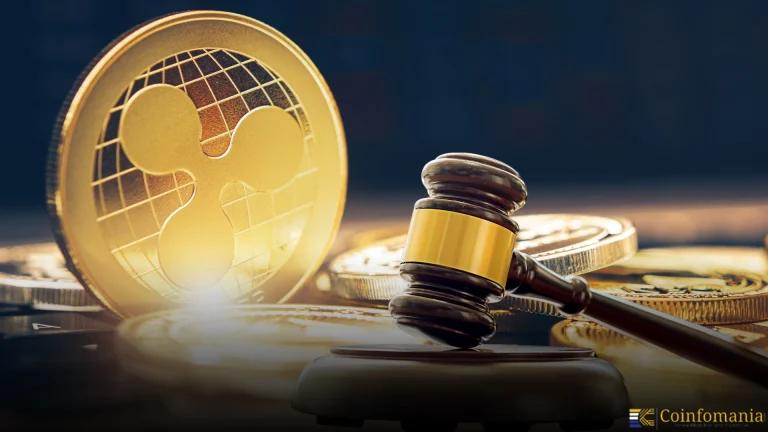Cryptocurrency Regulations in Morocco
Cryptocurrency became a global term that helped countries to gain financial freedom and security. Where Morocco is lacking in digital freedom but gradually beginning to modify its financial legislation and create systems to accommodate digital assets. While not technically considered legal tender, a huge transformation has occurred whereby formerly there existed this absolute ban on […]

Cryptocurrency became a global term that helped countries to gain financial freedom and security. Where Morocco is lacking in digital freedom but gradually beginning to modify its financial legislation and create systems to accommodate digital assets. While not technically considered legal tender, a huge transformation has occurred whereby formerly there existed this absolute ban on all forms of cryptocurrency, which over time has changed to acknowledging its possibilities by allowing some experimentation with regulatory frameworks. The primary institutions overseeing the formulation of policies and regulations concerning digital assets are the Bank Al-Maghrib (BAM) and the Moroccan Capital Market Authority (AMMC).
Moroccan financial regulations very keenly protect against fraud and targeting economic stability for blockchain adoption in core industries. The Moroccan government is channeling innovation in a very thoughtful manner, all the while ensuring the safety of this innovation as it concerns cross-border transactions and digital payments.
Historical Context
Outlawing cryptocurrency trading in 2017, Morocco put up strict safeguards against any financial risks. Now, with the rising adoption across countries and businesses, Moroccan authorities might change their attitude toward digital currency.
Key milestones include:
- 2017: Ban on crypto transactions under foreign exchange laws.
- 2023: Discussions began on regulated crypto usage.
- 2025: Draft legislation proposes licensing for exchanges under BAM supervision.
This shift indicates Morocco’s cautious but evolving stance toward digital assets.
Regulatory Framework
Licensing & Compliance
- Crypto exchanges must obtain approval from Bank Al-Maghrib.
- Mandatory AML/CFT compliance for registered platforms.
Taxation
- Crypto profits subject to capital gains tax (15%).
- Businesses must report crypto transactions for tax purposes.
Security Tokens & ICOs
- AMMC oversees tokenized securities.
- ICOs require regulatory approval to prevent scams.
Morocco’s Crypto Policies
Legal Status
Cautiously, Morocco has modified its position slightly and now permits some cryptocurrency trading through licensed platforms approved by Bank Al-Maghrib. While this is a deviation from the blanket ban issued in 2017, restrictions still apply preventing the use of digital assets for commercial payments or settlements.
CBDC Development
Bank Al-Maghrib has furthered and researched deep developments toward the possibility of introducing a digital dirham and has accomplished its first feasibility studies in 2024. It is now robustly pushing for public scrutiny prior to any possible deployment of the consultative exercise, with indications by sources about a peak test set for 2026-2027 if the technical and economic conditions are judiciously favorable.
Regulatory Enforcement
Any Moroccan individual engaged with the unauthorized activities of cryptocurrency by penalties ranging from MAD 20,000 to MAD 100,000 for individuals and MAD 500,000 for corporates. For repeat offenses, such actions could lead to criminal proceedings as provided for in the financial laws of Morocco, with a stricter focus on unlicensed trading platforms and businesses trying to escape payments restrictions.
Morocco’s Approach to Crypto Innovation
Morocco seems to have embraced a rather careful yet pragmatic approach to promoting easier crypto innovations. Except for an informal regulatory sandbox, fintech startups can get special exemptions for blockchain projects, developed through the Bank Al-Maghrib’s case-to-case approval system. Business acceptance is generally low, given still-developing regulations, although a couple of banks have started private blockchain experiments for cross-border payment and document verification.
The government is currently trialing multiple blockchain applications in key sectors, especially through banking consortiums testing out distributed ledger technology, and through a Ministry-run pilot digitizing land registry records. These staged implementations show Morocco’s preference for institutional adoption of blockchain technology rather than an open integration of cryptocurrencies, complementing the incremental financial modernization scheme it has adopted.
Notable Challenges
Even as Morocco gets forward about adopting, using cryptocurrency legally in the future, many problems still exist before establishing security on digital assets. This is due to some technological limitations, regulatory gaps, and overall continuing public distrust toward decentralized finance systems.
Key Challenges
- P2P Trading Risks – Unmonitored and unregulated peer-to-peer platforms can create scams.
- Public Distrust – Extreme public skepticism will probably hinder mass acceptance.
- Enforcement Gaps – It is extra difficult for the authorities to follow illicit crypto flows.
- Regulatory Lag – Innovations in cryptocurrency outpace the evolution of policies.
- Bank Resistance – Traditional institutions avoid crypto integration.
- Cross-Border Risks – Uncontrolled crypto movement affects monetary policy.
Future Outlook
Morocco’s cryptocurrency framework is headed for significant evolution in coming years. The State will introduce stricter regulations around exchanges by 2026, which will bring the regulations to complicate compliance requirements and protections for consumers. The digital dirham CBDC project may even progress to pilot testing if research phases yield good results, which could put Morocco in a leading position among countries in the region concerning sovereign digital currencies.
The growing interaction between North African nations and digital assets makes Morocco’s decisions in regulation very crucial, as they may create a template for neighboring markets. The balanced approach of the country – cautious oversight and selective innovation might give a model for the regional crypto policy. These changes are indicative that Morocco has been gradually preparing for a well-structured digital asset ecosystem while still keeping stress on monetary stability.
Conclusion
Morocco continues to methodically regulate cryptocurrency, gradually taking steps toward acceptance yet shielding financial stability essentially. The forthcoming policies and research on electronic currency would eventually create Morocco as the most-anticipated leader in North Africa’s crypto space from now on. Morocco investors should watch for the 2025-2026 exchange rules and CBDC progress as it shapes its digital financial future.
FAQs
1. Is it legal to trade cryptocurrency in Morocco?
Since 2017, all cryptocurrency trading has been prohibited under Morocco’s foreign exchange regulations. While some peer-to-peer trading occurs discreetly, authorized platforms don’t exist and penalties apply for any transactions.
2. Can Moroccans legally invest in foreign crypto ETFs?
No. The prohibition extends to all forms of cryptocurrency investment, including foreign-listed ETFs. Banks block related international transfers.
3. Are Moroccan banks allowed to custody crypto assets?
Currently prohibited, but draft legislation may permit licensed custody services by select banks under strict BAM oversight.
4. How does Morocco treat crypto gifts and inheritance?
No clear legal framework exists, making crypto inheritance legally uncertain. Gifts could trigger tax reporting requirements.
5. Do Moroccan laws apply to citizens trading crypto abroad?
Technically yes, as foreign exchange controls apply to residents globally, but enforcement remains challenging.
6. How does Morocco handle crypto tax reporting?
While trading is illegal, any disclosed crypto holdings could theoretically be subject to wealth tax provisions.
7. Are there exceptions for blockchain developers?
No special exemptions exist, though authorities tolerate non-financial blockchain development projects.
8. Can Moroccan businesses accept crypto payments from foreign clients?
No. The ban applies to all commercial crypto transactions, even cross-border payments. Businesses must use traditional banking channels for international trade settlements. Violations risk fines up to 200,000 MAD.
9. Are there any approved crypto education programs in Morocco?
No formal programs exist due to the ban. Some universities quietly teach blockchain basics in fintech classes but avoid hands-on trading lessons to follow regulations.
10. Does Morocco’s ban apply to stablecoins like USDT?
Yes. The prohibition covers all virtual currencies regardless of type. Stablecoins face particular scrutiny as authorities view them as potential tools for circumventing foreign exchange controls.
Follow us on Google News
Get the latest crypto insights and updates.
Related Posts

Ripple Highlights Custody as Key to $18.9T Tokenized Assets by 2033
Shweta Chakrawarty
Author

Hong Kong SFC Issues New Custody Rules for Crypto Platforms
Shweta Chakrawarty
Author

South Korea and Vietnam eye $150B trade despite Trump tariff
Shweta Chakrawarty
Author